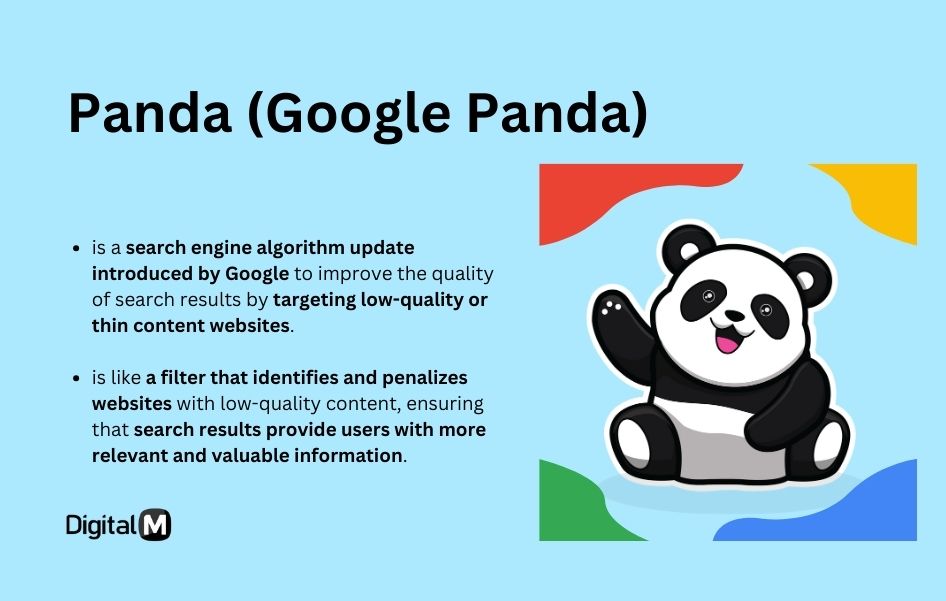Panda (Google Panda)
Google Panda is a search engine algorithm update introduced by Google to improve the quality of search results by targeting low-quality or thin content websites. It was first rolled out in February 2011.
Google Panda is like a filter that identifies and penalizes websites with low-quality content, ensuring that search results provide users with more relevant and valuable information.

Key Points:
Content Quality: Panda focuses on evaluating the quality of content on web pages, targeting those with thin, duplicate, or low-value content.
Algorithmic Update: Panda is not a penalty applied manually but rather an algorithmic change that assesses and ranks websites based on content quality.
Factors Considered by Panda:
Thin Content: Pages with very little substantive content relative to the page size.
Duplicate Content: Repeated or copied content across multiple pages.
Content Farming: Websites that produce large amounts of low-quality content with the aim of attracting traffic.
Frequency of Updates:
Google periodically updates its algorithms, including Panda. Updates may lead to changes in how websites are assessed, impacting search rankings.
Recovery from Panda:
Websites that have been negatively affected by a Panda update can recover by improving the quality of their content, addressing issues such as thin or duplicated content, and demonstrating a commitment to providing value to users.
Importance in SEO:
Content Quality Matters: Panda reinforces the importance of high-quality, valuable content in achieving and maintaining good search rankings.
User-Centric Focus: The algorithm aligns with Google’s goal of providing users with the most relevant and useful search results.
Example:
A website that previously ranked well in search results might see a drop in rankings after a Panda update if its content is deemed low-quality. Improving the content can lead to a recovery in rankings.
Why it Matters:
User Experience: Panda aims to enhance the overall user experience by ensuring that search results deliver high-quality and relevant content.
Content Strategy: Websites must focus on creating substantial, unique, and valuable content to maintain or improve their search rankings.
Algorithmic Evolution: Understanding and adapting to algorithmic changes like Panda is crucial for long-term SEO success.
In summary, Google Panda is an algorithmic update designed to improve the quality of search results by targeting and penalizing websites with low-quality or thin content. It underscores the importance of providing valuable content for a positive user experience and sustainable search engine visibility.

